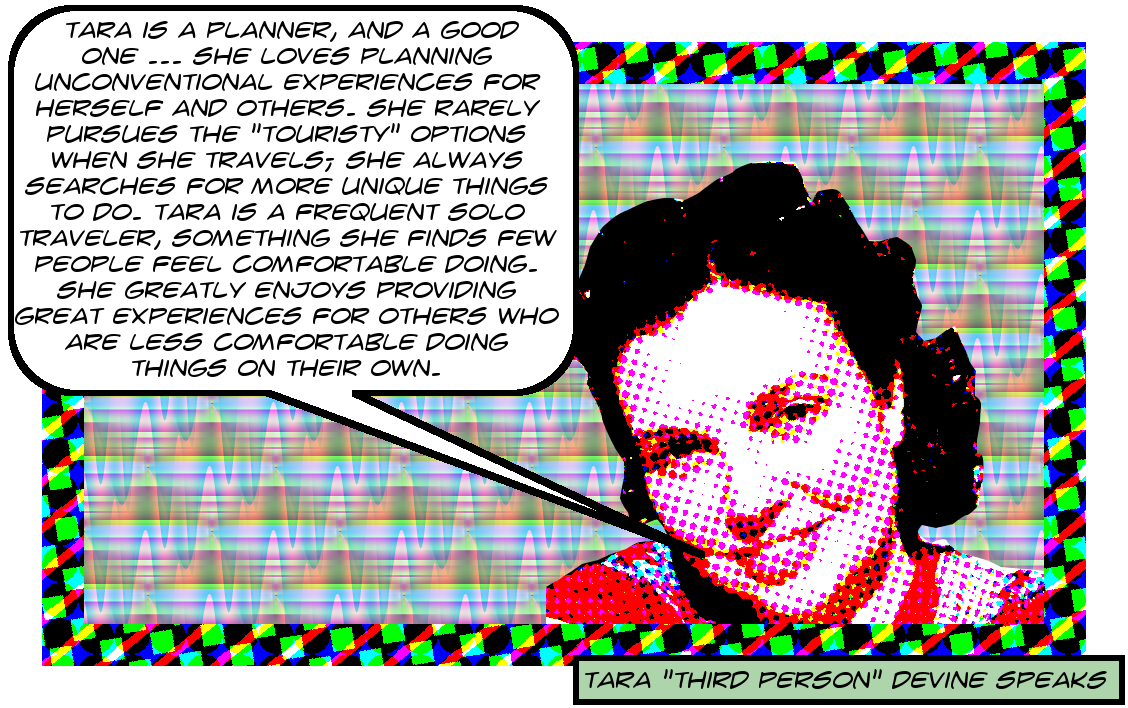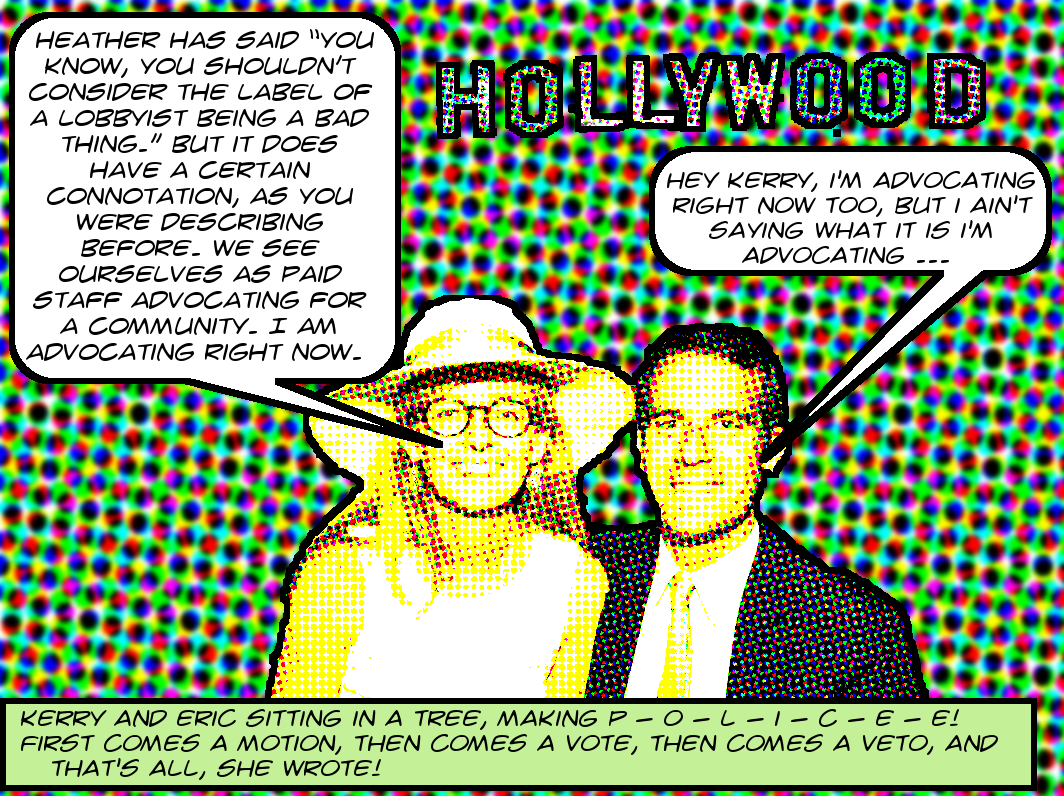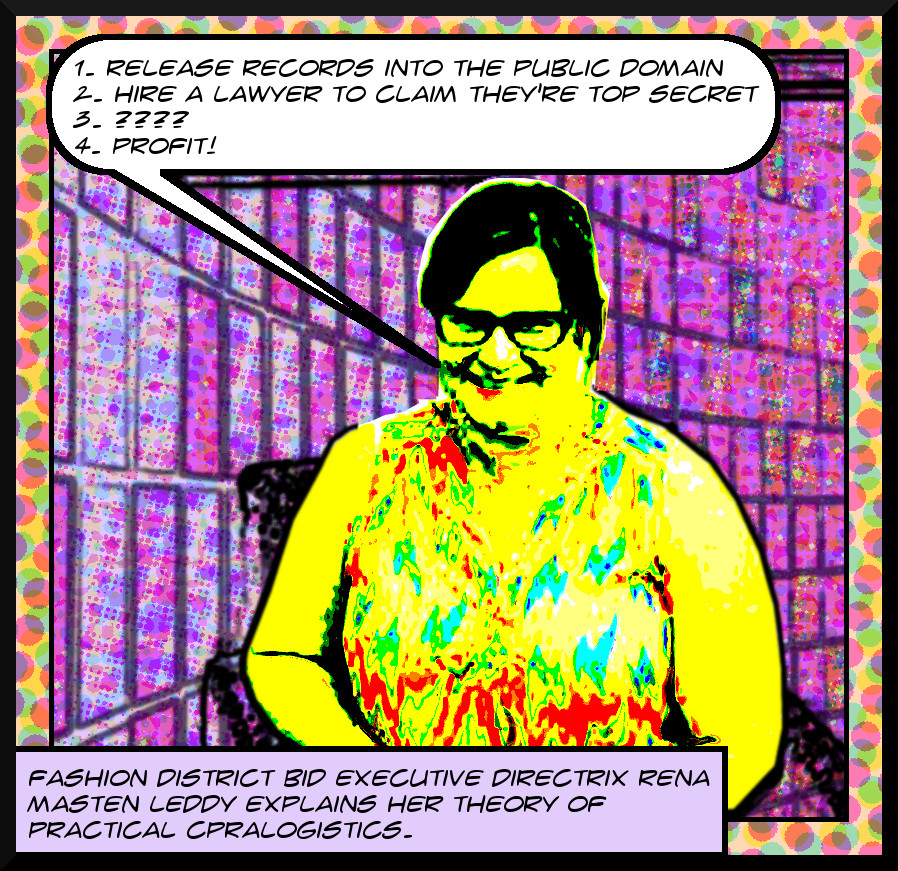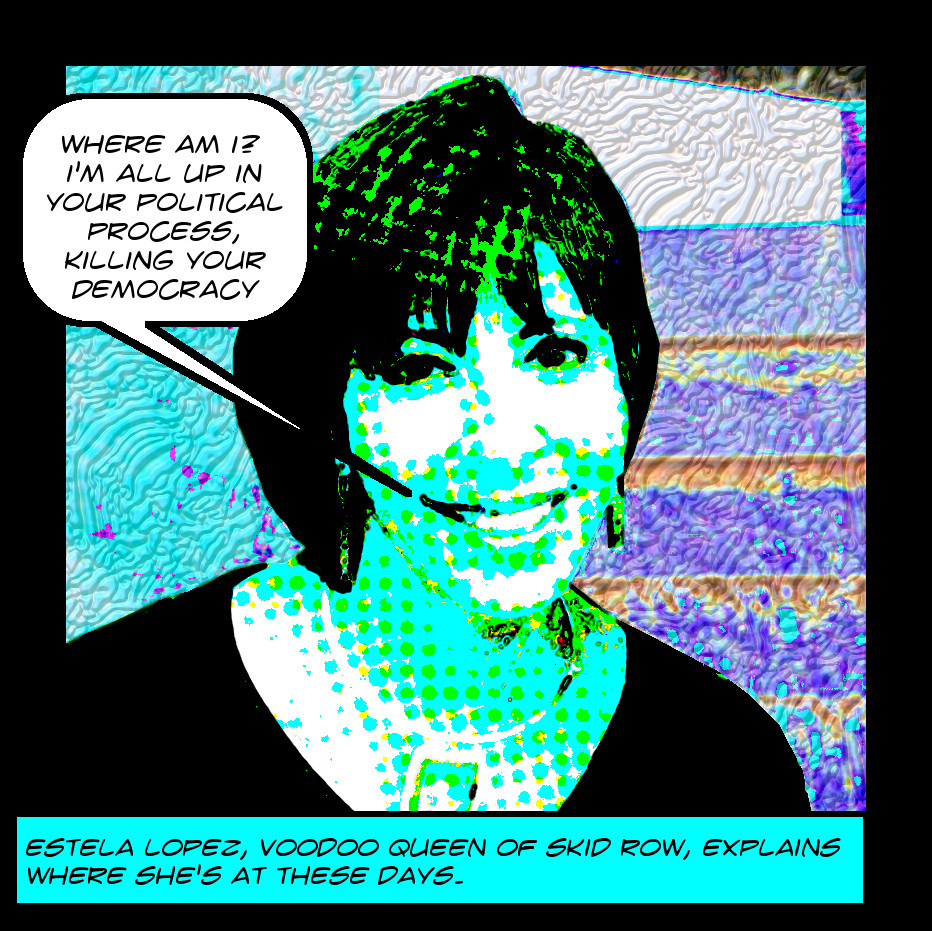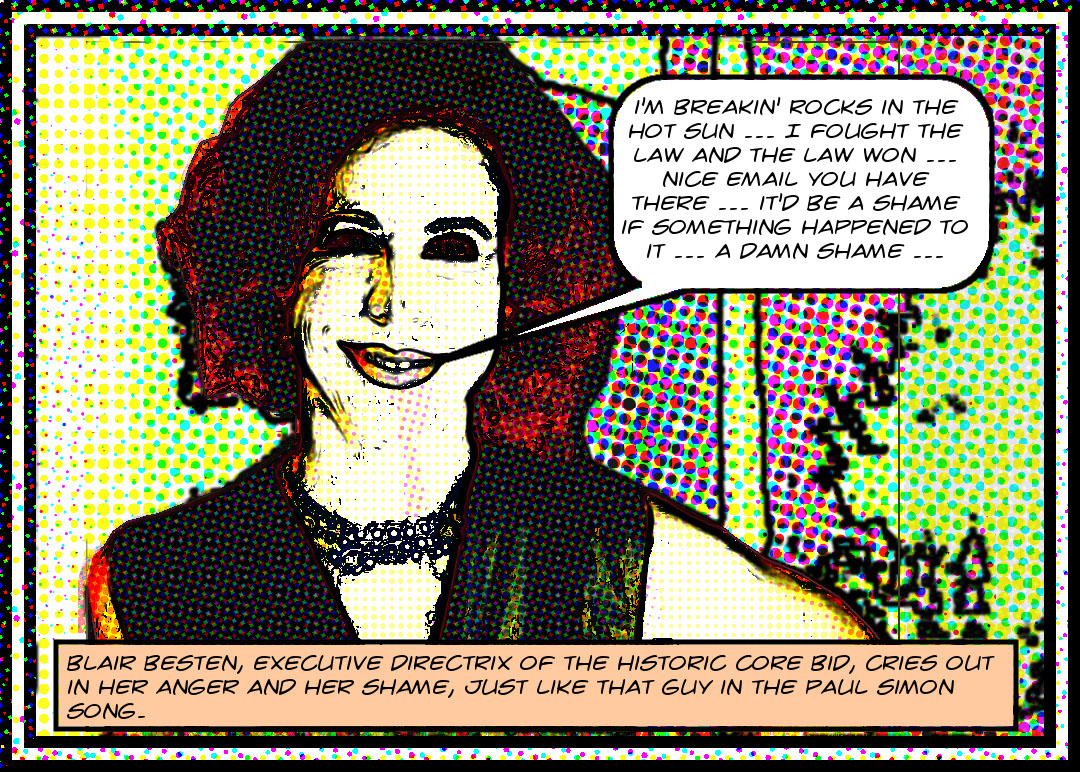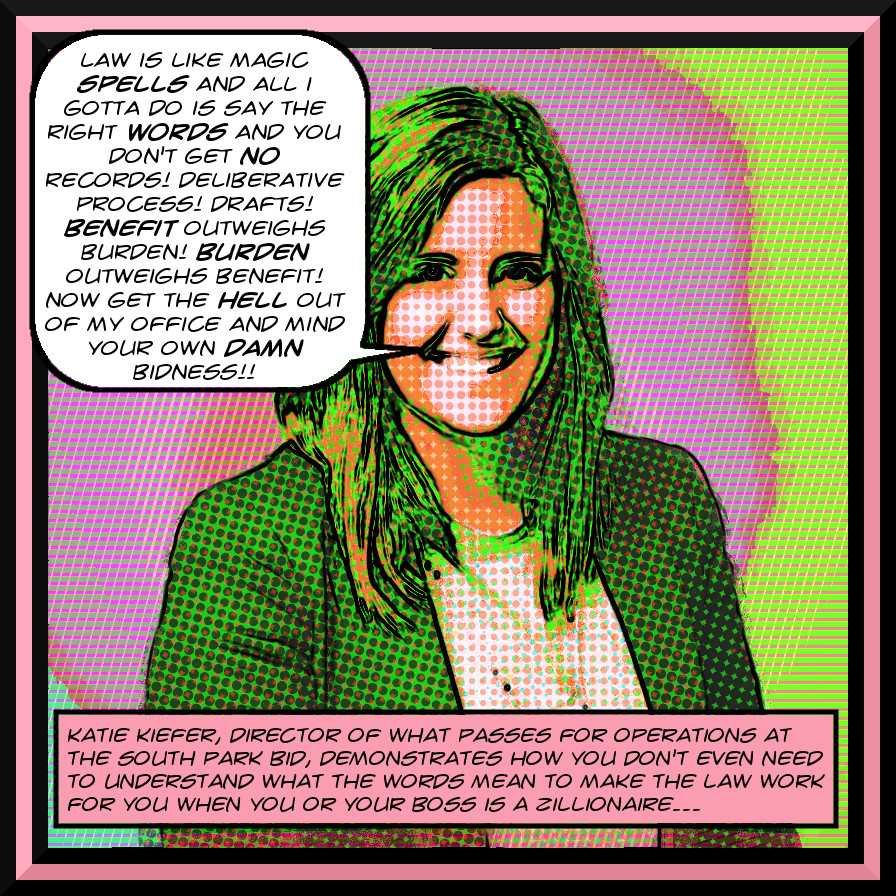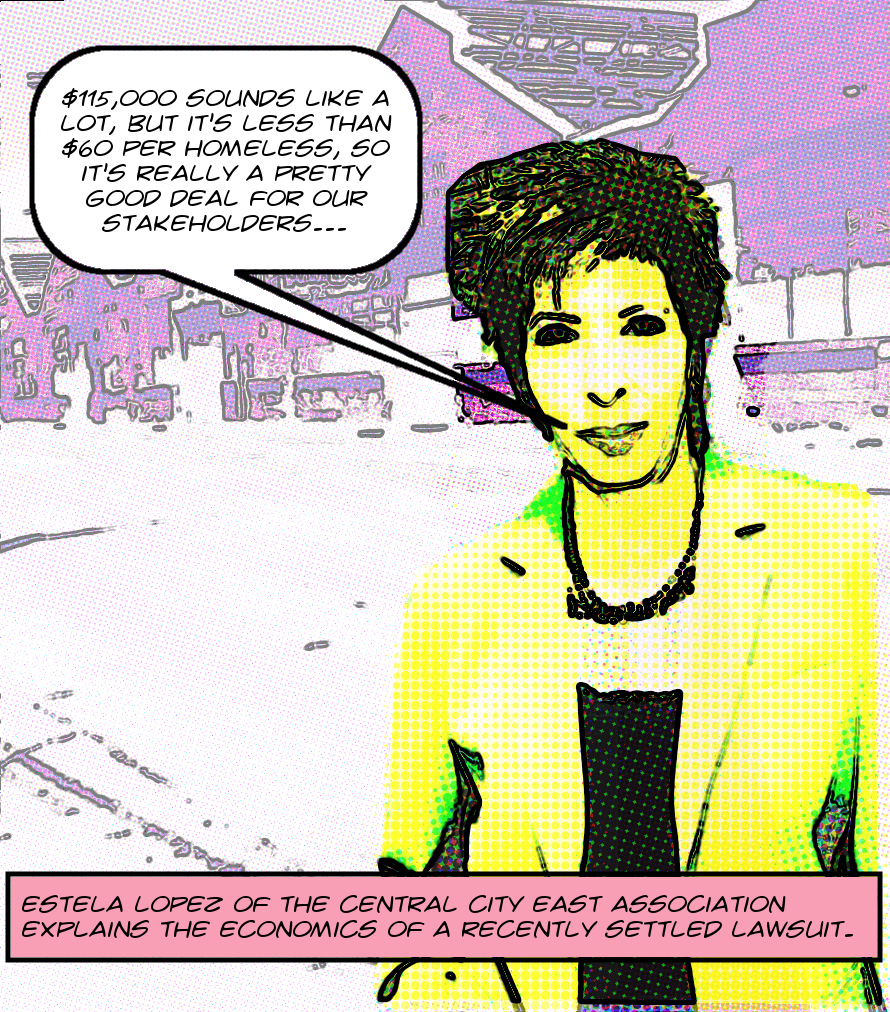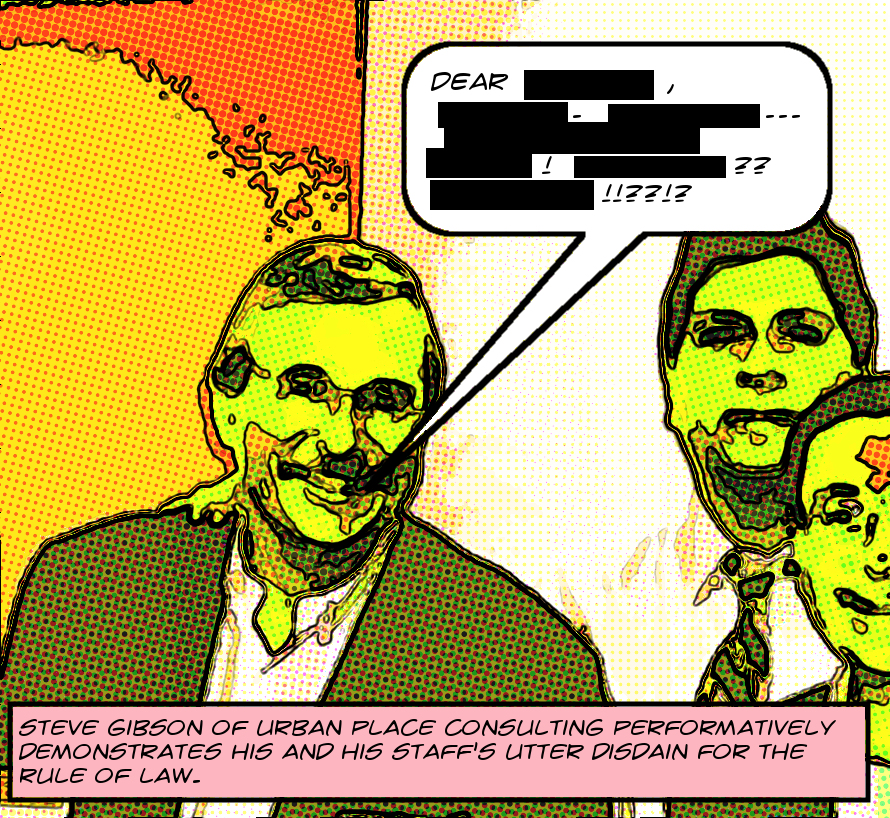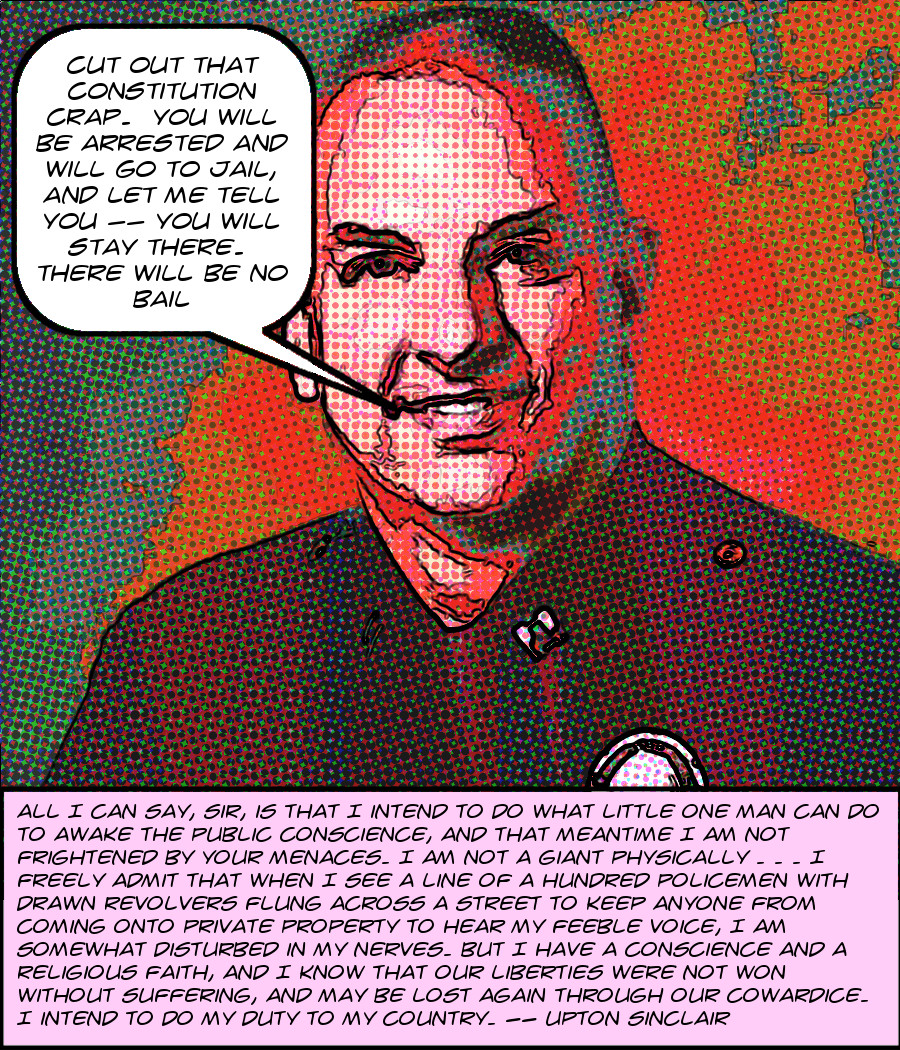When business improvement districts in California are created, it’s required by the Property and Business Improvement District Act of 1994 at §36622 to file a so-called management district plan (MDP) with the City. This is meant to describe exactly what the BID is going to spend its money on, and it’s incorporated into the City’s Ordinance of Establishment, by which means the BID is created. It must be approved by the City Council, and the City has the power to revise it at will. The law makes it pretty clear that BIDs are actually forbidden from spending money on activities that aren’t in the MDP, although this facet of the law is generally ignored by the City.
And I’m presently working on a project that requires a close reading of invoices submitted by Tara Devine1 to the South Park BID over the years, which I obtained last month as the fruit of a CPRA request.2 Although 2012 is outside the timeline I’m working on, I was fascinated to note that Tara Devine seems to have been engaged by the South Park BID to actually write that year’s annual planning report3 for them. One of the things that she billed for in the course of performing her contract to do so Tara Devine billed for was a conversation with accounting firm RBZ, since merged with Armanino, and the subject of that conversation was wholly new to me:
Continue reading Apparently The City Attorney Of Los Angeles Has Opined That Business Improvement Districts Can’t Spend Money On Things That Aren’t In Their Management District Plans Unless The Plans Are Amended — At Least That’s What Shadowy BID Consultant Tara Devine Said In 2012 And Why Would She Lie About That?

